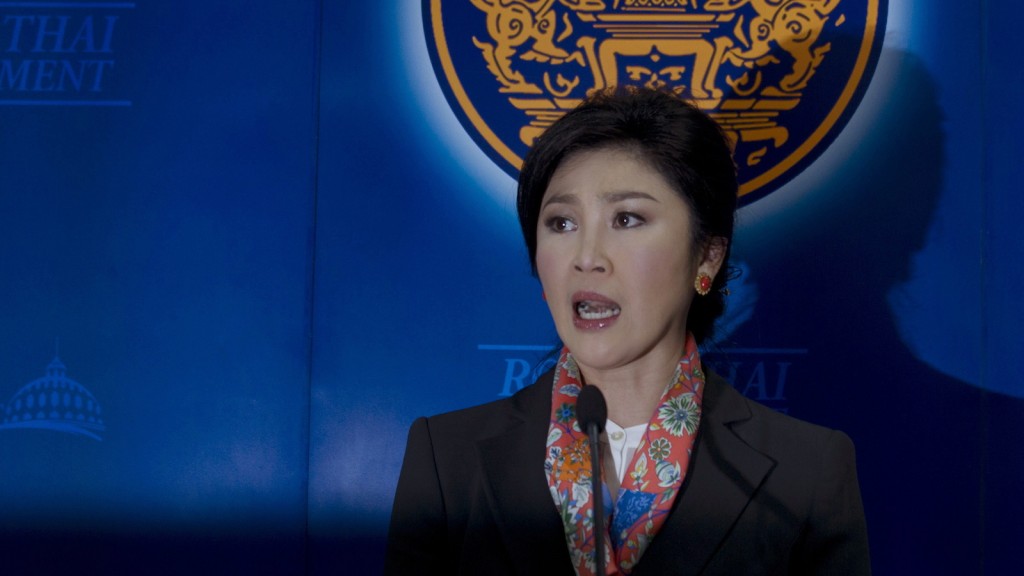Your morning five: Thai court ousts prime minister
Also: Rob Ford loves rehab
Thailand’s Prime Minister Yingluck Shinawatra speaks during a press conference in Bangkok, Thailand Wednesday, May 7, 2014. Yingluck was ordered by a court to step down Wednesday in a divisive ruling that handed a victory to anti-government protesters who have staged six months of street protests – but does little to resolve the country’s political crisis. (AP Photo/Sakchai Lalit)
Share

We tell you five things you need to know.
1. Yingluck Shinawatra is no longer Thailand’s prime minister. The country’s constitutional court convicted Yingluck of abuse of power after she controversially transferred a senior public servant to a new position in 2011. Niwatthamrong Boonsongphaisan will serve as acting prime minister until the country goes to the polls on July 20—months after a derailed election and sustained anti-government protests. Al Jazeera reports that “many fear” a pro-Yingluck rally “could spark violence,” though the news agency doesn’t explain who the many are.
2. The AFN is out of sorts. Shawn Atleo quit his post as the national chief of the Assembly of First Nations, accused by his detractors of being too close to the governing Conservatives. The National Post‘s Joseph Brean found a senior member of the organization who was worried that only “hopeless idealists and outrage radicals” had a shot at replacing Atleo—a shift in leadership that would likely lead to a less productive relationship with the feds. The AFN won’t elect a new chief for several months, and in the meantime has no single voice with which to speak for its members.
3. South Africa votes. The country has gone to the polls five times since the end of apartheid, and the same party—the African National Congress, formerly led by Nelson Mandela—has won every time. Later today, the ANC is expected to win once again, possibly with 60 per cent of the vote, beating 28 other parties. About 25 million South Africans have registered to vote at the 22,000 polling stations that opened this morning.
4. Nigerian police offer cash reward for help finding girls. The cops are hoping that $300,000 is incentive enough for someone to provide clues to the whereabouts of hundreds of girls kidnapped by Boko Haram terrorists earlier this month in northern Nigeria—and eight more girls abducted just this week. The militant group opposes western education. A team of Americans is now contributing to the search.
5. Rob Ford likes rehab. The mayor told his confidant, the Toronto Sun‘s Joe Warmington, that he’s entered a rehab facility and is loving every minute of it. He won’t say where he is, but he will say that his fellow recovering addicts include doctors, a pro athlete and a “captain of industry.” Ford regrets his poor decisions, but insisted on a silver lining. “I do feel bad about what happened,” he told Warmington. “But it might have been the best thing that happened because I am working on getting better.” Worldwide humiliation as the “best thing”? Even in recovery, Ford won’t stop spinning his fate.